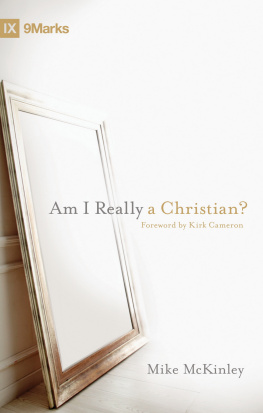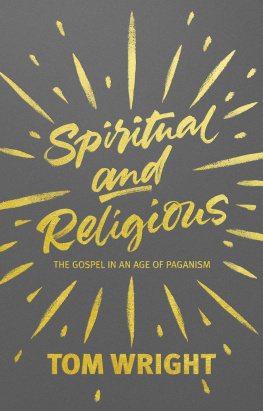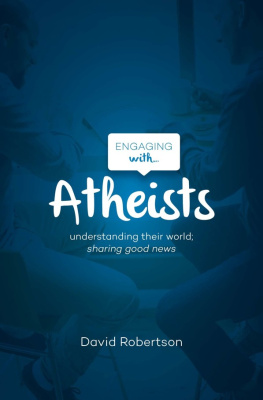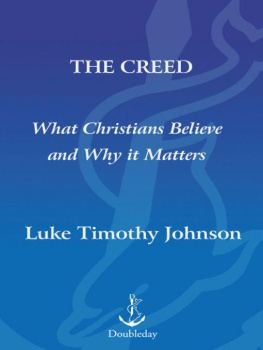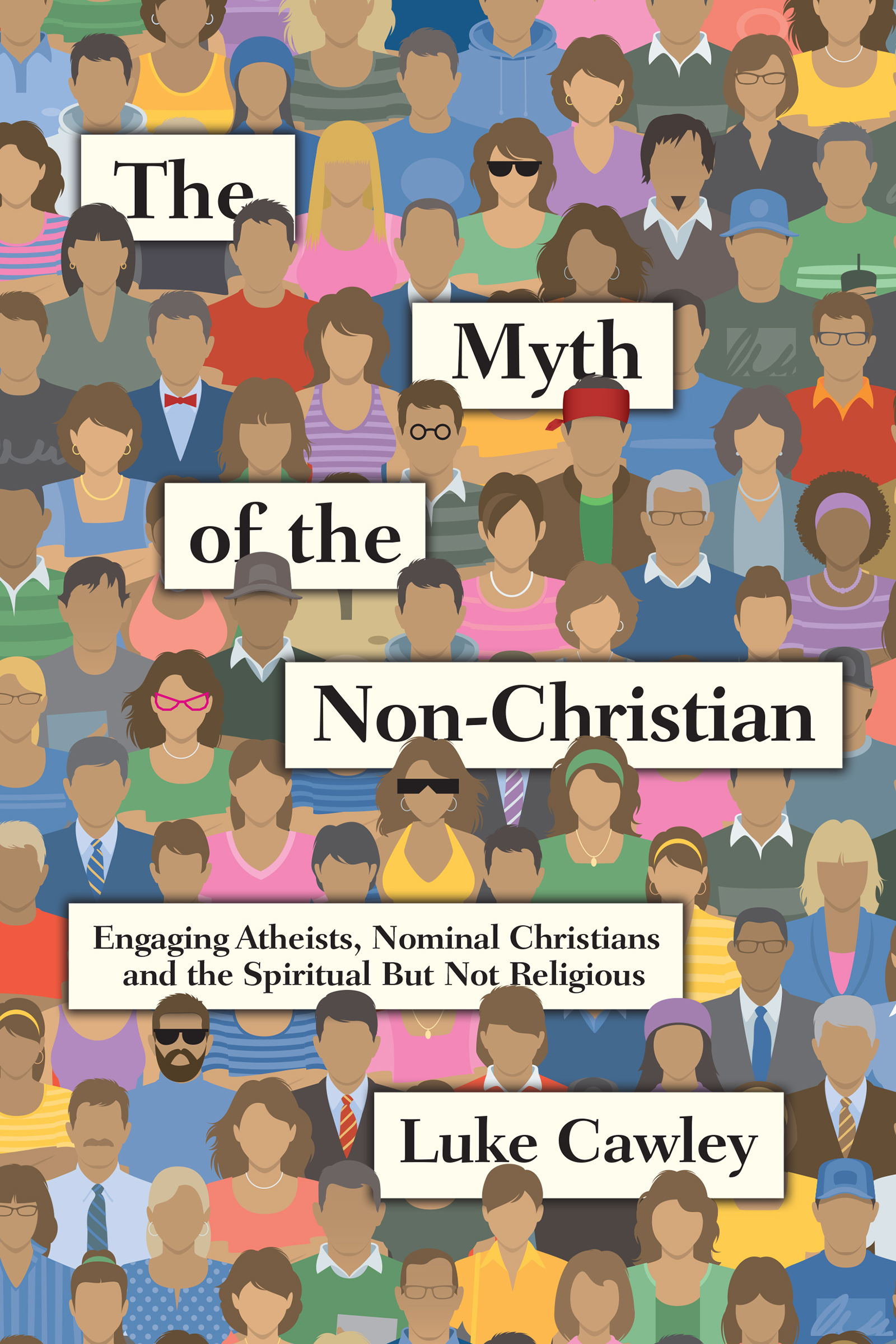through their words and example.
- ONE -
Flexibility
t heres no such thing as a non-Christian. I am more convinced of this than ever. An atheistic journalist and a hedonistic student helped me understand why. One was crying on the phone, the other was skipping down the street.
The Atheist, Crying on the Phone
Tabathas eyes flooded with tears as she spoke on the phone with her mother. She was halfway through a six-week introductory course on Christianity that had thrown her into complete emotional disarray. She had not entered as a questioning atheist, or one who was looking for God. She happily hadnt believed in God, but as a journalist with a sense of curiosity about religion, she had bravely taken the plunge and signed up for the course.
Before Tabatha started she had no particular animus toward religious people. She did, however, think that most religious beliefs were probably stupid and that organized religion is a horrible thing. So she was pleasantly surprised when she found herself liking the Christians who ran the course. They were friendly and welcoming. They were also willing to be open about their struggles and even about personal issues such as their marriages.
By the end of the course she felt uplifted from being among such genuinely happy people. Why, then, was she crying on the phone to her mother? Was it conviction of sin? An intense sense of her need for Jesus? Some other great spiritual moment?
No, she was crying because she was frustrated. It saddened, annoyed and upset her to be among a group of people who discussed something as profound as God and yet were unable to satisfactorily answer her most basic questions about why she should place her trust in him.
Every week she had raised issues such as the trustworthiness of the Bible, the necessity of believing in God to lead a moral life, the seeming unfairness of God extending grace to murderers, the scientific basis for believing in a creator God, the problem of suffering and religions reputation for perpetuating warfare. And every week the leaders simply quoted Scripture to her or described her questions as something we will never understand.
So she cried. She was sad for the people leading, that they invested their lives in something they had not bothered to think through or question for themselves. Tabatha probably also cried because her encounter with Christianity had caused the whole thing to seem less plausible rather than more so. Shed hoped for a different outcome.
In the end, although she had enjoyed making friends through the course and was conscious of how it had helped others, she decided that Christianity was not for her. Even if it were true, no Christian seemed able or willing to make a credible case for her accepting it. So she moved on.
The Hedonist, Skipping down the street
Not everyone had the same experience as Tabatha. A student named Karen attended the very same course when it was held in a bar on a university campus in the north of England. Before joining the course, Karen was a broken woman. She later said that everything she had been doing at that time was an attempt to fix herself. Drinking and attracting male attention were her two favored methods for attempted self-reparation. Whenever she could persuade a good-looking man to spend time with her, she felt less insecure. Under the surface, though, her anxieties were still there and eventually came back.
God wasnt even on Karens radar. She hadnt ever given him a second thought and assumed that all religion was a load of rubbish. Who, after all, needs all those rules and regulations? It all seemed so distant from her own struggles. But when two of her university colleagues told her they were launching an introductory course on Christianity, she decided to show them some support. Thats how she found herself in a bar talking with a group of Christians.
The people were so friendly and warm, and she found herself increasingly excited about going back. The weekly gathering was like a warm oasis in the midst of her otherwise troubled and turbulent life. She also began to understand that Christianity wasnt anything like her previous assumptions about religion; it was, instead, about a relationship with this very compelling person called Jesus.
On the last night of the course someone from a local church came and spoke about the Holy Spirit. After the speaker finished, music filled the room, and a leader invited the people present to sing along. As Karen stood, listening to the singing, she became open for the first time to the possibility of knowing God. At that very moment a woman approached Karen and offered to pray for her. Karen agreed. The woman placed her hands on Karen and began speaking, and Karen suddenly felt light and happy. The weight of her burdens and insecurities dissolved as she welcomed God into her life.
At the end of the evening she found herself smiling uncontrollably and skipping excitedly across campus and back to her home. She knew she didnt have to fix herself any more. She no longer required the attention of men in order to bolster her self-esteem. Drinking was now unnecessary for her to unlock her confidence. It was the beginning of a life with God that has continued to flourish over the years since.
Two young women attend the exact same course. One becomes convinced that Christianity has no answers and cries on the phone to her mother. The other one senses that Jesus is her only hope and ends up skipping joyfully across campus. Same input, different outcomes.
No Non-Christians
Much of my current ministry with the organization Chrysolis is focused on developing communicators who can speak clearly and persuasively about Jesus in nonchurch settings such as universities, bars and places of business. Prior to that I spent years developing missional communities on university campuses with the International Fellowship of Evangelical Students movement. In both settings it has been common, after I give a talk to Christians, for someone to ask me, How can we better engage non-Christians with the message of Jesus? Its always a question that throws me.


